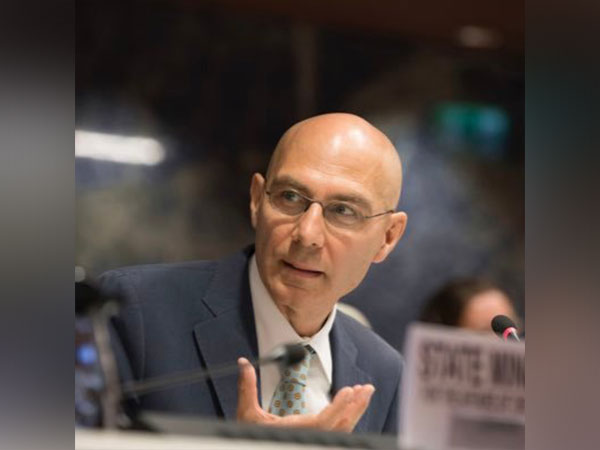UN Rights Chief Condemns Russian Strikes on Ukraine as Humanitarian Crisis Deepens
Volker Türk highlights escalating civilian suffering, energy shortages, and human rights violations as Ukraine marks 1,000 days of war.

UN High Commissioner for Human Rights Volker Türk has strongly condemned recent Russian strikes on Ukraine’s power infrastructure, which have intensified the humanitarian crisis across the war-torn nation. Over the weekend, missile and drone attacks targeted energy installations in at least 15 regions, including the capital, Kyiv, leaving millions of civilians at further risk as winter looms.
“These latest attacks on energy installations are yet another cruel blow to civilians who have already endured so much,” Türk stated, as Ukraine approaches the grim milestone of 1,000 days since Russia launched its full-scale invasion on February 24, 2022.
Winter Threats and Civilian Suffering
The weekend's attacks come as Ukraine faces a critical energy shortage exacerbated by nine prior waves of strikes on its power infrastructure over the summer. The shortages pose significant risks to vulnerable groups, including older people, low-income families, and the internally displaced.
“A winter power shortage will place the health and well-being of civilians at grave risk,” Türk warned, urging Russia to comply with its international obligations under the UN Charter and the International Court of Justice.
Grim Toll of the War
According to UN estimates, at least 12,162 civilians, including 659 children, have been killed since the war began, with an additional 26,919 injured. Explosive weapons, responsible for 92% of these casualties, have devastated towns like Bakhmut, Avdiivka, and Vovchansk, leaving them almost entirely destroyed. Ukraine now ranks among the most heavily mined countries globally, with unexploded ordnance posing an ongoing threat to civilians and hindering recovery efforts.
Medical infrastructure has also suffered heavily, with over 662 healthcare facilities damaged or destroyed. This disruption has significantly limited access to essential health services.
Intensified Attacks and Occupation
In October alone, Russian forces launched nearly 2,000 drones into Ukraine—an average of over 60 per day. Civilian casualties in the last quarter reached their highest levels since mid-2022, underscoring the escalation of hostilities.
Meanwhile, in Russian-occupied territories, which now encompass approximately one-fifth of Ukraine’s land, residents face systematic repression and rights violations. “Repression, violence, and impunity have become deeply entrenched in these areas, where people live in a pervasive state of fear,” Türk said.
Russian authorities have replaced Ukrainian systems of governance, justice, and education with their own. The Ukrainian curriculum has been banned, with young people being forced into Russian youth organizations promoting allegiance to Russia.
Calls for Global Action
Türk urged intensified international efforts to end the conflict and prioritize accountability for human rights violations. “It has been 1,000 days too many of senseless pain and suffering,” he stated. “The ongoing armed attack by Russia must remain a central focus of the global agenda.”
The Road Ahead
As Ukraine braces for the challenges of winter, Türk’s remarks underscore the urgent need for humanitarian support and a renewed push for peace. The High Commissioner called on the international community to stand firmly with Ukraine, providing the resources and diplomatic efforts necessary to alleviate civilian suffering and restore stability in the region.
- READ MORE ON:
- Volker Türk
- Ukraine










